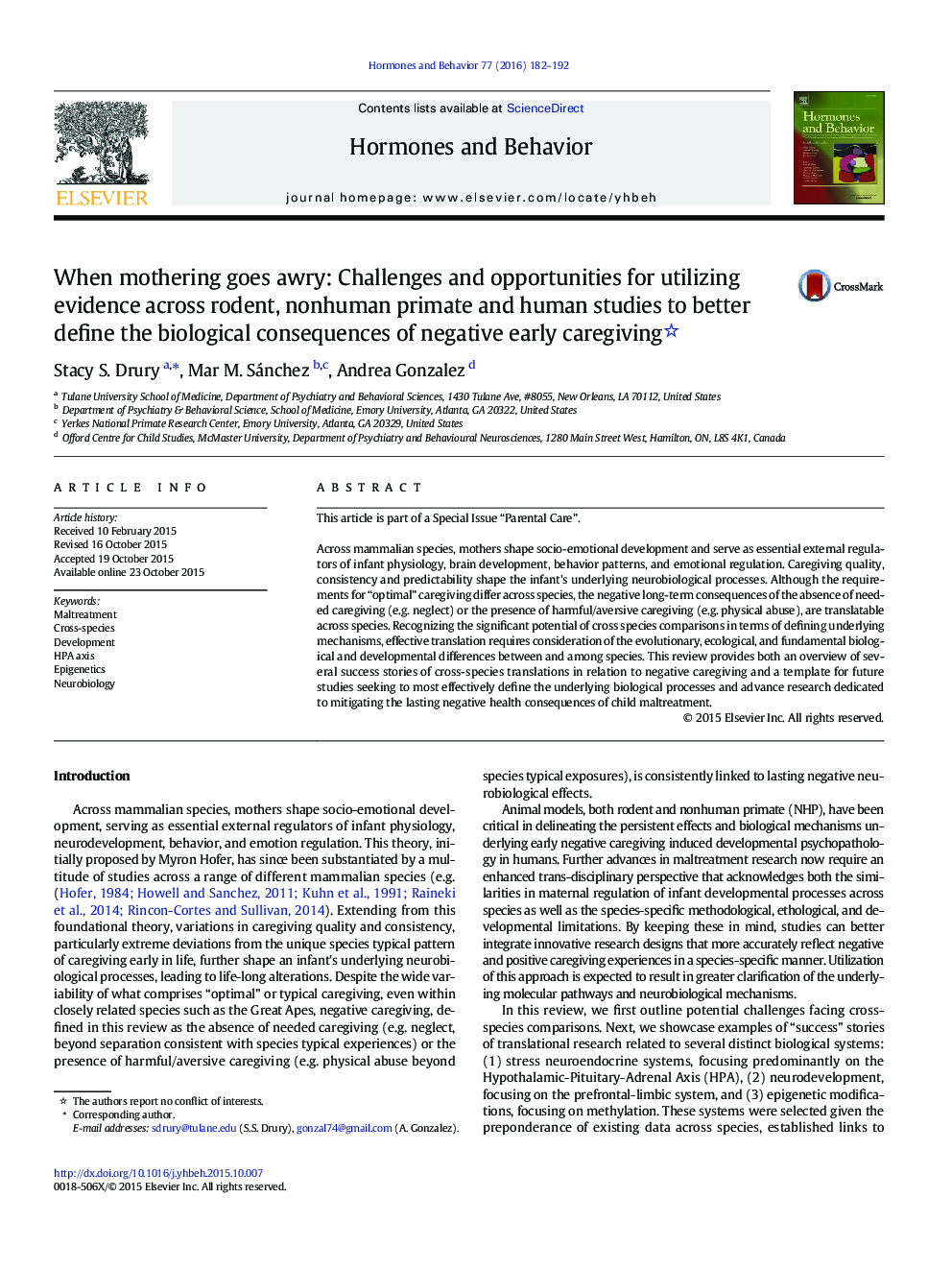| Article ID | Journal | Published Year | Pages | File Type |
|---|---|---|---|---|
| 323067 | Hormones and Behavior | 2016 | 11 Pages |
•Early negative caregiving influences infant neurobiological development.•Challenges of caregiving models both within and across species exist but are surmountable.•Research across species may reveal underlying neurobiological pathways impacted by maltreatment.
This article is part of a Special Issue “Parental Care”.Across mammalian species, mothers shape socio-emotional development and serve as essential external regulators of infant physiology, brain development, behavior patterns, and emotional regulation. Caregiving quality, consistency and predictability shape the infant's underlying neurobiological processes. Although the requirements for “optimal” caregiving differ across species, the negative long-term consequences of the absence of needed caregiving (e.g. neglect) or the presence of harmful/aversive caregiving (e.g. physical abuse), are translatable across species. Recognizing the significant potential of cross species comparisons in terms of defining underlying mechanisms, effective translation requires consideration of the evolutionary, ecological, and fundamental biological and developmental differences between and among species. This review provides both an overview of several success stories of cross-species translations in relation to negative caregiving and a template for future studies seeking to most effectively define the underlying biological processes and advance research dedicated to mitigating the lasting negative health consequences of child maltreatment.
